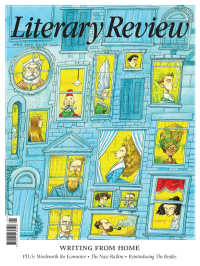Malcolm Murfett
Isle of the Dead
Crucible of Hell: Okinawa – The Last Great Battle of the Second World War
By Saul David
William Collins 418pp £25
War books are an extraordinary breed of literature. They have an enduring popularity with readers drawn from a vast array of classes and occupations. There is no Brexit here, no division between the haves and the have-nots, no political distinction to separate one from the other. War sells and it always has done. Look at the shelves of your local Waterstones or WHSmith; check the array of titles on offer in airport departure lounges or at train stations; go online to Amazon and other book sellers: books on military themes dominate the history offerings, and among them a bewildering number still deal with the two world wars.
Heroism and excitement, danger and adventure, personal glory and redemption, incompetence and destruction: war has it all. Stories about remarkable acts of bravery and endurance can be both graphic and compelling, and those virtues are to be found in abundance in this new study of the battle for the island of Okinawa in 1945. Mind you, it isn’t an easy read. How could it be? The battle proved to be a dreadful experience for both the Americans and the Japanese: so much death and destruction, so many talented and courageous victims.
Crucible of Hell is aptly titled. Written with verve and style, Saul David, a professor of military history at the University of Buckingham, has plundered letters, diaries, memoirs and interviews and brings a host of personal stories and anecdotes into his study of this frightful episode. He deserves credit for

Sign Up to our newsletter
Receive free articles, highlights from the archive, news, details of prizes, and much more.@Lit_Review
Follow Literary Review on Twitter
Twitter Feed
‘The Second World War was won in Oxford. Discuss.’
@RankinNick gives the question his best shot.
Nicholas Rankin - We Shall Fight in the Buttery
Nicholas Rankin: We Shall Fight in the Buttery - Oxford’s War 1939–1945 by Ashley Jackson
literaryreview.co.uk
For the first time, all of Sylvia Plath’s surviving prose, a massive body of stories, articles, reviews and letters, has been gathered together in a single volume.
@FionaRSampson sifts it for evidence of how the young Sylvia became Sylvia Plath.
Fiona Sampson - Changed in a Minute
Fiona Sampson: Changed in a Minute - The Collected Prose of Sylvia Plath by Peter K Steinberg (ed)
literaryreview.co.uk
The ruling class has lost its sprezzatura.
On porky rolodexes and the persistence of elite reproduction, for the @Lit_Review: